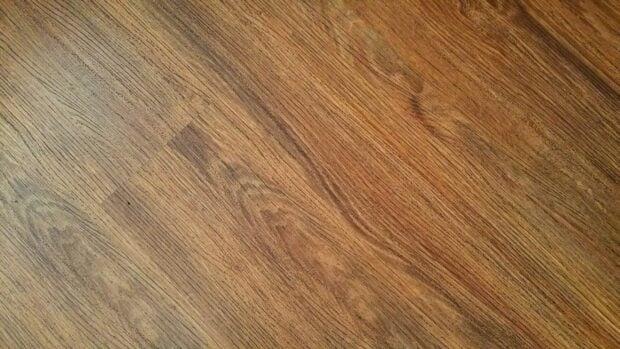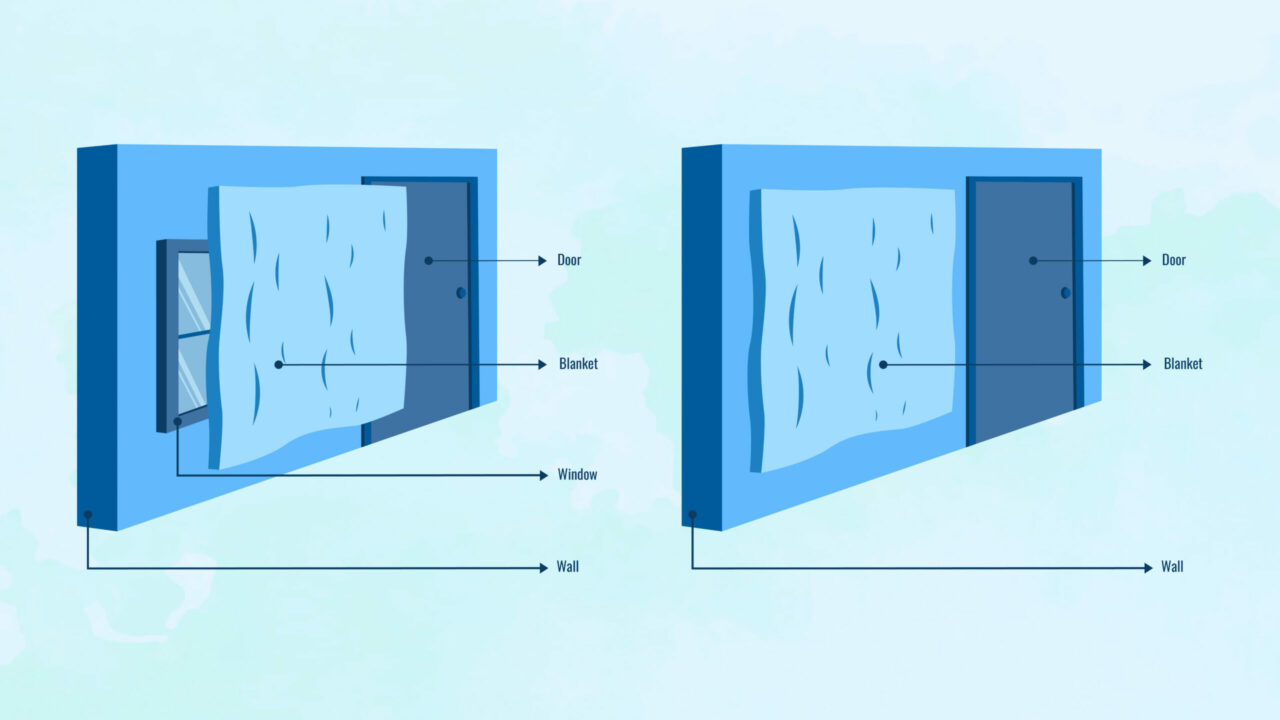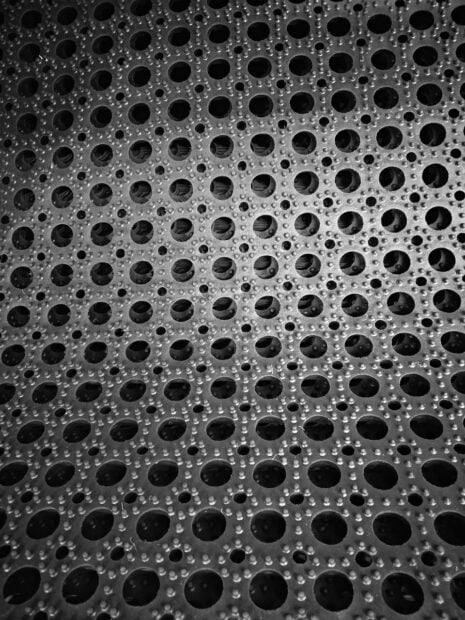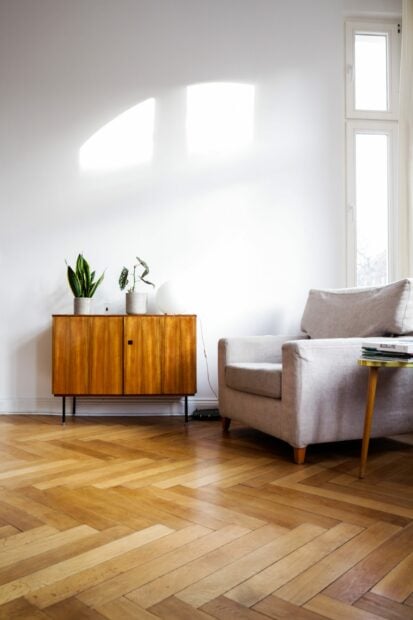You can easily soundproof hardwood floors by installing an underlayment, using green glue to attach wood flooring, adding carpets and rubber mats, and inserting deck screws.
As beautiful as they are, hardwood floors aren’t the best for blocking out noise. It’s the worst for intimate living spaces like apartment buildings – especially if you have loud neighbors!
Luckily, there are ways to soundproof hardwood floors by yourself. Here are some things we’ve tried and also recommended to peers. And yes, they worked!
Airborne Noise and Impact Noise: An Overview

Before finding the right solution to reduce noise and soundproof your room, it’s helpful to know the different types of sounds you’re trying to block.
There are two categories of noise: airborne noise and impact noise. Both are equally disturbing but are transferred differently, requiring distinct ways to control them.
Airborne Noise
Airborne, from the term itself, is when the noise travels through the air. Examples are people talking, music playing, phone ringing, etc.
Airborne sounds are best controlled using absorbent materials on the wood floor. The noise level of airborne sound is more manageable.
Impact Noise
Impact noises are vibration sounds that occur upon impact. Examples are feet stomping, kids running, or vacuum working.
Add layers (like rugs or subfloor) and fixing the actual flooring are the best ways to reduce impact noise.
Impact noises are harder to deal with because the noise level is difficult to control. You can’t stop people from moving or walking around.
How to Soundproof Hardwood Floors/Wood Flooring

Here are 5 soundproofing methods to try. Remember that these soundproofing methods help reduce noise levels, but may not completely eradicate them.
1. Install Flooring Underlayment
A floor system may look like this simple flat surface, but it’s made with multiple layers beneath. The composition of this is crucial when absorbing sound and movements.
My first tip is most helpful during new construction or before the hardwood floor system is installed. Adding an underlayment creates a divide between construction materials.
The underlayment is best placed between two hard surfaces – the subfloor and the hardwood floor panels.
The purpose of placing an underlayment is to cushion the wooden floor to absorb sound. Adding a soft surface underneath addresses both impact and airborne noise.
If you need to soundproof a music room where noises with heavier bass and loud music are expected, we suggest doing this. They’re also great if you want to soundproof tile floors.
Some underlayment materials to choose from are natural rubber, fiber, cork, and foam. We find the rubber mat and foam material to absorb noise levels the best. It decreased dramatically!
The only downside of an underlayment is that you can’t install it on a finished hardwood floor system. Unless you’re willing to redo everything, it can be quite a hassle.
2. Apply Green Glue When You Nail Down Hardwood Floors
Green glue works similarly to the underlayment but can also be applied as an additional layer if you already have one.
We recommend this if you haven’t installed the wooden floor yet or don’t mind redoing your hardwood floor system. Green glue can absorb loud noise for up to 90% and is also usable for walls.
It’s easy to apply and is cheaper to prevent impact noise. You can spread this across the subfloor or on the underlayment.
Others use this as adhesive instead of nailing down the wood floor. It’s best for spaces such as the workout room, playing room, or any active part of the house.
The con of green glue is that it takes a week for it to completely dry and take effect. If you’re in a rush to block some sound, it might not be the best option.
3. Add a Carpet or a Rug
If it’s too late to add a soundproofing material or compound underneath, the easiest and cheapest solution is to use a carpet.
Adding a carpet or rug on laminate flooring cushions both the blow of impact and noise. If you constantly move furniture or have children who love to throw things, the carpet will absorb the noises.

Your unit neighbor below your house will thank you for not destroying their ceiling!
Of course, the biggest downside of a carpet is covering the hardwood floor design. If your goal is to have an interior with a wood floor, it might defeat the purpose.
Additionally, carpets require a level of maintenance and cleaning.
4. Add Rubber Mats to Your Existing Floor

If you’re dealing with a workout room, playing room, or pet room, carpets may not be the best choice. As mentioned, it requires maintenance. It’s difficult to clean up the mess!
If green glue is not plausible, using a rubber mat is an excellent alternative to carpets. A rubber mat cushions more impact-style noises without reinstalling the hardwood floor.
You can also place rubber mats on areas where people commonly walk if soundproofing the entire floor is not an option.
And lastly, they’re easier to clean and are more versatile, making it easier to match certain themes or decorations.
5. Insert a Deck Screw into Your Wood Floors
Hardwood floors are prone to squeaking sound noises. This is the most annoying because squeaking floors are bothersome and require fixing effort.
To eliminate squeaky flooring noise, insert a deck screw to keep the hardwood floors in place. And to do this, you need to work with the subfloor.
To access the subfloor, you’ll have no choice but to remove the current flooring. But the good news is, you don’t have to do this to all floors – only those parts with squeaky sounds.
BONUS: Using Sound Absorption
If you don’t have access to the items mentioned, there are still ways to suppress the floor noises. The concept of reducing noise is sound absorption!
If you don’t have glue or underlayment, you can temporarily use any soft material to soundproof rooms. If you don’t have a rug, use a blanket. Or any rubber mat.
You can also add more items to the rooms if you find the noises to travel too quickly. A bare floor and room can do that.
By adding more furniture or accessories like soundproof curtains, the noise will naturally start to travel slower, even if you don’t have soundproof floors.

How Much Does It Cost to Soundproof Hardwood Flooring?
Soundproofing floors is not cheap. There are different types and various categories to choose from. Generally, the overall cost is around $500-$2000.
Most expenses involve the labor fees of removing, installing the noise reduction material, and reinstalling the floor. The labor to soundproof hardwood floors can be intensive.
To save, it’s best to soundproof your hardwood floors during construction. Add in the sound-absorbing material before the hardwood floors are installed.

Frequently Asked Questions
What Type of Flooring Is Best for Soundproofing?
Carpet tiles are the best floor type for a soundproof room. They do an excellent job of absorbing any noise.
How Can I Soundproof a Hardwood Floor Cheaply?
Carpeting is the best way to suppress noises cheaply. If you want to reduce sound and noise travel, place carpets on the floor. It’s also the easiest and most effective way.
Can You Completely Soundproof a Floor?
It’s possible to completely soundproof a floor, but it isn’t easy. We can’t control all the noises we’re surrounded by, so we can’t fully manage them 100%.
However, understanding the source and how the sound wave dynamics bounce around the room can help us control the flow of sounds, making it challenging but workable.
Does Soundproofing Increase Home Value?
Soundproofing can potentially increase home value, but it’s not always guaranteed. If your goal is to increase home value, there are other ways to improve it.
Not all home buyers are looking for soundproof floors, so it doesn’t necessarily affect the selling price of a house.
Is Soundproofing Worth the Money?
If you’re someone who values peace and hates interrupted sleep, soundproofing your house may be the best solution. Consider it as an investment for home improvement.
The benefits are worth it in the long run, and they’re usable even for the next 20 years. It won’t hurt to have this done!
Conclusion
Hardwood floors may be aesthetically pleasing and easy to maintain, but it’s not the best soundproof floor. Fortunately, there are ways to manage noise within an affordable range.
You don’t have to go to great lengths to keep the peace around your home. Simple DIY methods also work like a charm!



